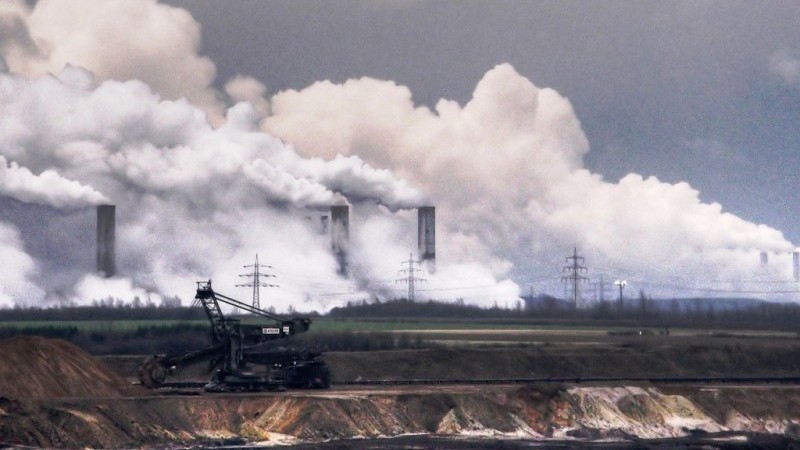World
Germany and Chile are starting a club to assist developing countries in reducing emissions from industry

At the COP28 climate summit next week, Germany and Chile intend to establish a club of governments to assist developing countries with investments in decarbonizing industries such as cement and steel production.
The action was taken a few weeks after the European Union introduced the world’s first carbon border tax trial phase. This policy, which will impose emission costs on imports of cement and steel that are high in CO2 starting in 2026, has alarmed trading partners.
The “climate club” in Chile and Germany might try to allay those worries.
According to a draft statement, the partners will introduce a platform for matching emerging and developing nations with funding and technical assistance from public and private sectors to decarbonize industries.
At a launch event at the U.N.’s COP28 climate summit in Dubai on December 1, the statement is scheduled to be made public.
“On hard-to-abate sectors, starting with steel and cement, we will advance conducive policy frameworks for accelerating decarbonization,” the statement said.
It further stated that part of this would involve working to coordinate international green industry standards, such as those about measuring emissions in industrial goods.
According to a spokesman for Chile’s environment ministry, the club “reinforces the importance of multilateralism and of working together in search of solutions.”
Berlin has been rallying support from governments and financial institutions. The club held its first members’ meeting in May to decide on its objectives.
The United States, Argentina, Australia, Canada, Colombia, Egypt, the European Union, Indonesia, Japan, Kenya, Mozambique, Morocco, Ukraine, and the United Kingdom are among the 33 countries listed on the club’s website.
During a meeting, this week in Berlin with the heads of several organizations, including the World Bank, African Development Bank, and World Trade Organization, German Chancellor Olaf Scholz talked about the “climate club”.
The plan offers to cooperate with these countries on industry cleanup instead of penalizing them, which is akin to offering an olive branch to governments enraged by the EU’s carbon border tax, or CBAM.
“I would say that the climate club, in this case, is the carrot, and CBAM is the stick,” said Petter Lyden, co-head of international climate policy at campaign group Germanwatch.
“But to be really successful, this club needs the participation of more countries, because some of the biggest emerging economies with big industrial sectors are still missing,” he added.
China and India have not yet joined. The EU carbon border tax has drawn criticism from China, the largest steel exporter in the world, calling it a trade barrier.
Regarding the measure, India intends to file a complaint to the World Trade Organization. According to the European Commission, the policy is made to abide by WTO regulations.
-

 Business3 weeks ago
Business3 weeks agoPrakash and Kamal Hinduja: Driving Social and Environmental Change
-
Education4 weeks ago
Fred DuVal: University Leadership as a Critical Resource for Climate Change Research and Life-Saving Solutions
-

 Cryptocurrency3 weeks ago
Cryptocurrency3 weeks agoDesigned For The Masses: How Akasha (AK1111) Is Unlocking Crypto For The Next Billion Users
-

 Health3 weeks ago
Health3 weeks agoThe Hinduja Brothers Commitment to Global Health: Empowering Communities Across Borders
-

 Cryptocurrency4 weeks ago
Cryptocurrency4 weeks agoNexaglobal & Future World Token (FWT): Could This Be the Next Big Crypto Investment of 2025?
-

 Startup2 weeks ago
Startup2 weeks agoCost-Saving Strategies Every Small Business Owner Should Know to Boost Efficiency
-

 Startup3 weeks ago
Startup3 weeks agoMatthew Denegre on the Art of Deal Sourcing: Finding the Right Investment Opportunities
-

 Health2 weeks ago
Health2 weeks agoSt. John’s Community Health Examines Innovations in Pharmacy Access






















